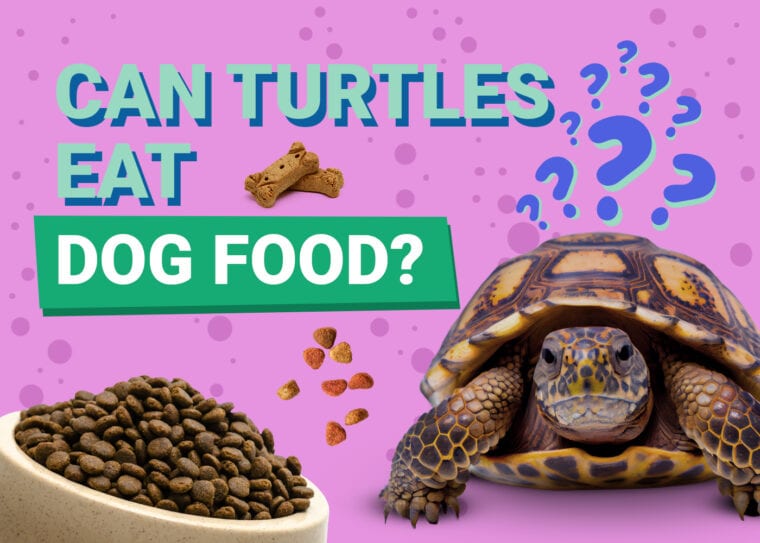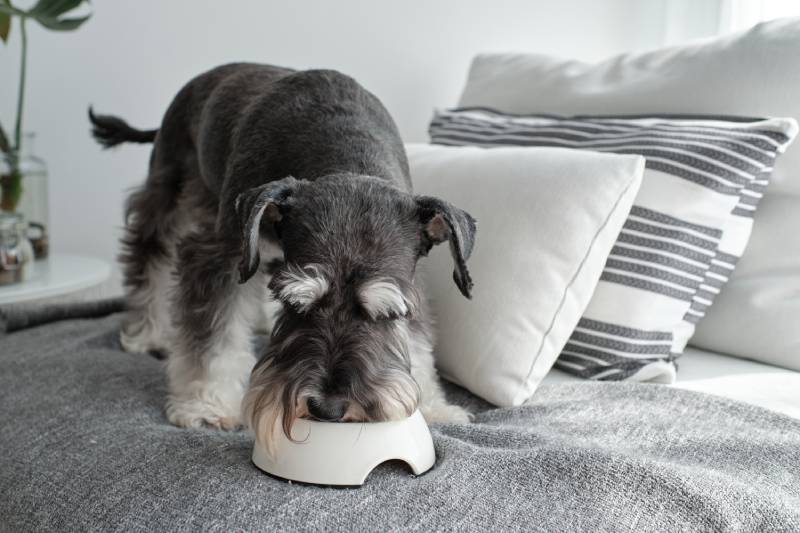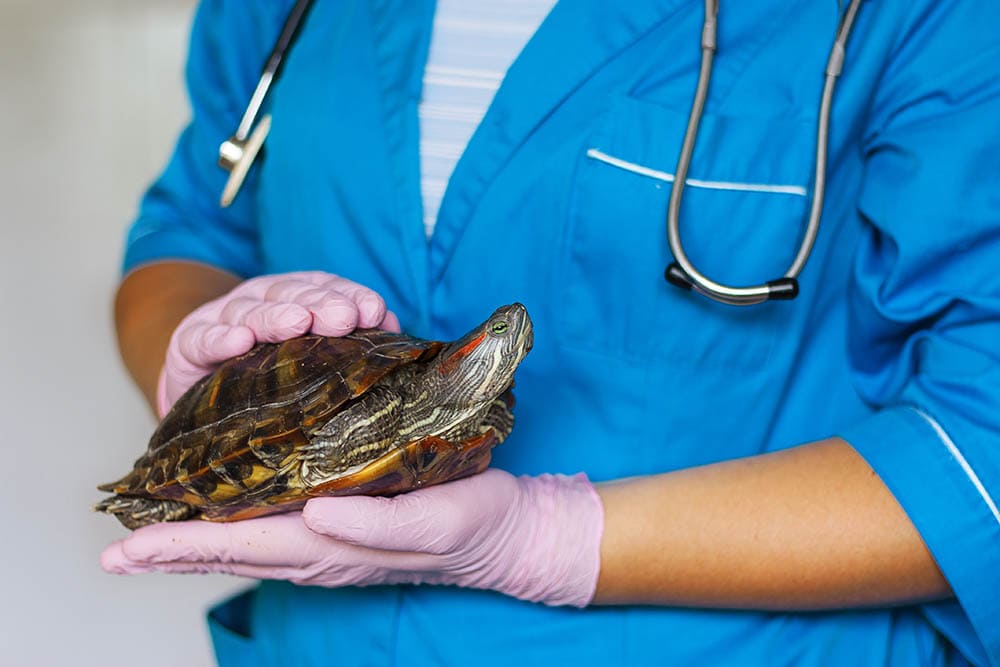
Turtles are fascinating reptiles that have seen a surge in popularity among exotic pet enthusiasts. While you may not be taking your turtle out for training sessions or walks like you would a dog, you will still need to learn how to properly care for these pets.
Wild turtles occupy a very broad range of ecosystems and therefore, have a very varied diet depending on their species and their role within an ecosystem. Of course, when it comes to feeding your turtle, you may consider easy options that are around your house or that your other pets enjoy.
One common question is, can turtles eat dog food? The short answer to that question is no, turtles shouldn’t be eating dog food. Turtles and dogs have significantly different nutritional needs, which means feeding a turtle dog food isn’t recommended. Let’s take a deeper look at this subject and help you better understand what is best for your turtle to eat.
Pet Turtle Nutrition
Turtles that are kept as pets are usually categorized as being carnivores, omnivores, or herbivores. Within these categories though, individual species of turtles have very distinct characteristics and therefore, have very distinct nutritional requirements. In addition, many turtles have different nutrient requirements depending on their age. For example, many species tend to have a more carnivorous diet when they are juveniles, but this may change to an omnivorous diet into adulthood.
All pet turtles do require the following:
For most species of turtles, precise nutritional requirements haven’t been determined. Unlike mammals, the nutritional requirements of a pet turtle must factor in environmental factors as well. This is because turtles are cold-blooded animals, and their metabolism is influenced by the temperature of their environment.
Dog food is formulated for canine consumption and usually contains animal meat and other food ingredients intended to provide a dog with all the nutrients they need for growth, tissue repair, reproduction, and general health maintenance. The pet food market has specialized diets for canines which are intended for various life stages.
The key nutritional composition of most dog food is protein and fats. Therefore, to assess the safety of dog food for turtles, one needs to begin by looking at their protein and fat requirements.

Turtle Protein & Fat Requirements
Protein is very important for growing turtles. Omnivorous and carnivorous turtles usually rely on animal sources for their protein. It is estimated that juvenile turtles of such species require anywhere from 45 – 55% protein in their diet. However, this should also be accompanied by a diet that contains under 15% fat – otherwise, the high amounts of protein will likely lead to an obese pet or issues with proper shell formation and development.
To prevent overnutrition, most veterinarian nutritionists recommend protein at around 25% for a young, healthy juvenile turtle. This is very important because excess nutrition is very detrimental for turtles. Overfeeding a young turtle will cause their shell to become deformed and appear more cone or pyramid-like. This is also known as shell pyramiding.
Shell pyramiding is considered detrimental for pet turtles. Not only is it an extra amount of weight a turtle has to always carry (they cannot dislodge their shells), but it’s problematic because a turtle’s lungs lie just underneath their shell, and an overly developed shell can lead to respiratory issues. Furthermore, carrying a heavy shell comes with the possible risk of muscle injuries to a turtle’s legs and body, difficulty laying eggs, and other health issues.
The protein and fat requirements of adult turtles vary considerably (depending on several factors), but are generally lower than those of their juvenile counterparts.
Canine Protein & Fat Requirements
Canine diets and nutrition have been extensively studied, and in most countries, the production of pet food intended for dogs is regulated by governmental agencies. Food formulated for canine nutrition must meet certain nutritional levels of each nutrient a dog requires. Within the US, these guidelines are set forth by AAFCO.
AAFCO guidelines mandate a minimum protein rating of 22.5% for puppies and 18% for adult dogs in maintenance (on a dry matter basis). They also recommend 8.5% and 5.5% fat for puppies and adult dogs, respectively 1.

Why Dog Food is Not Recommended For Turtles
At first glance, the fat and protein ratings requirements of dog food may seem compatible with turtles, there are several reasons why dog food isn’t recommended for turtles:
For these reasons (and many more) it is best to discuss your turtle’s diet with an exotic veterinarian and only offer them food items that your veterinarian approves for your pet turtle. As mentioned above, the nutritional requirements of your turtle will factor in several key components and isn’t something you should generalize or take likely.
Final Thoughts
Dog food is intended for canine consumption, and therefore, isn’t considered as compatible with a turtle’s diet. Though it may not necessarily be toxic for several species of turtles, the myriad of risks associated with feeding turtles dog food doesn’t make it a wise decision.
For this reason, steer clear of dog food and only feed your turtle foods that are safe for them and approved by your veterinarian.
- See also: Can Rabbits Die From Loneliness?
Featured Image Credit: Anna Hoychuk, Shutterstock








